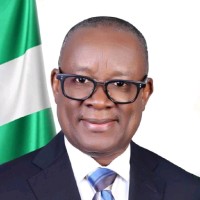The Nigerian government is facing criticism for extending the implementation of the 2024 budget to December 31, 2025, for the second time. This decision has sparked concerns about poor execution capacity, fiscal discipline, and potential inflationary pressures.
-Critics argue that repeated extensions indicate poor budgeting and planning, undermining the country’s economic stability. Renowned economist Ayo Teriba believes this is becoming a habit and questions the availability of resources to fund projects.
Extending the budget could lead to increased money supply, potentially causing inflation. Chief Economist Paul Alaje asserts that this will affect money supply and potentially spike inflation, although it might be marginal.
Running two budgets concurrently (2024 and 2025) may create room for duplication and reduce transparency in project implementation. Development economist Dr. Aliyu Ilias warns that this could lead to double allocations for capital projects and undermine budget discipline.
Ayo Teriba, Suggests that the government should look for money to ensure capital votes can be funded within 12 months, rather than extending the budget period.
Paul Alaje, recommends that Nigeria should understand budget cycles and limit extensions to the first quarter of the new year for predictability and inflation control.
Akpan Ekpo,emphasizes the importance of capital components in driving economic growth and notes that running two budgets simultaneously is an embarrassment, given the country’s expertise.
The extension may impact economic growth, employment, and development, particularly if the budget is not properly managed.
Critics argue that this move undermines budget discipline and sends the wrong signal, potentially creating a bad precedent for future budgetary procedures.

